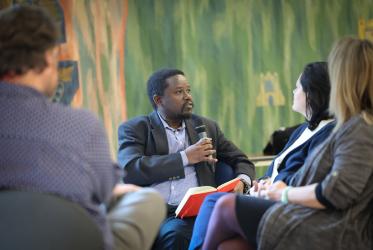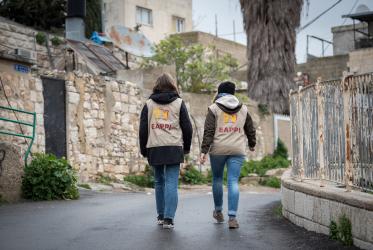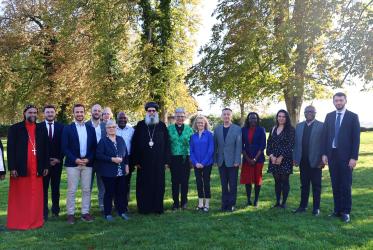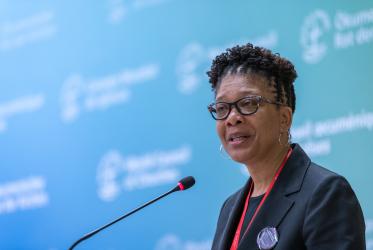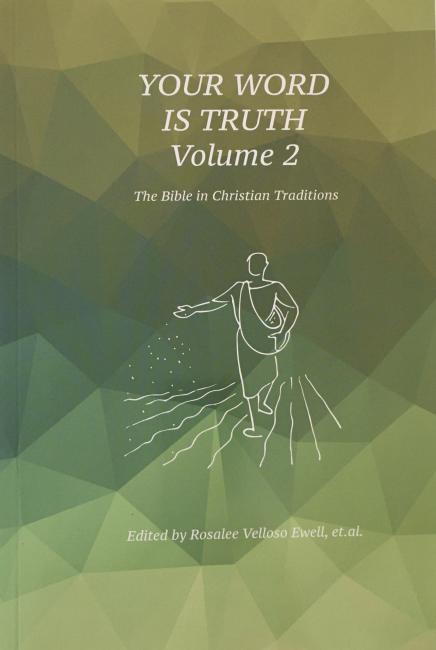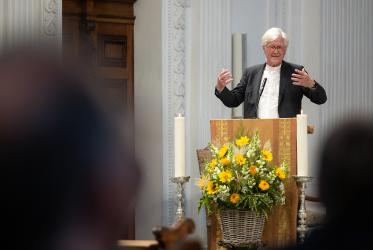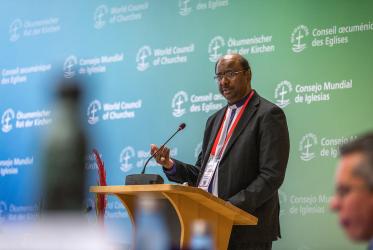Displaying 101 - 120 of 1260
26 October 2023
At peace conference, WCC focuses on overcoming racism
26 October 2023
“The occupation can’t last forever”
25 October 2023
“They want to live without fear and constant harassment”
25 October 2023
Kids Feel Safe Going to School when EAs are Present
23 October 2023
Thirty days that changed the ecumenical movement
23 October 2023
Philippines delegation meets with WCC to discuss human rights
19 October 2023
WCC moderator calls for a “reformation of hope” based on love
10 October 2023
Recommended Practices to Combat HIV-Related Stigma
A Guidebook for Local Faith Communities
05 October 2023
Faith Sector Implementation of the Global AIDS Strategy
05 October 2023

